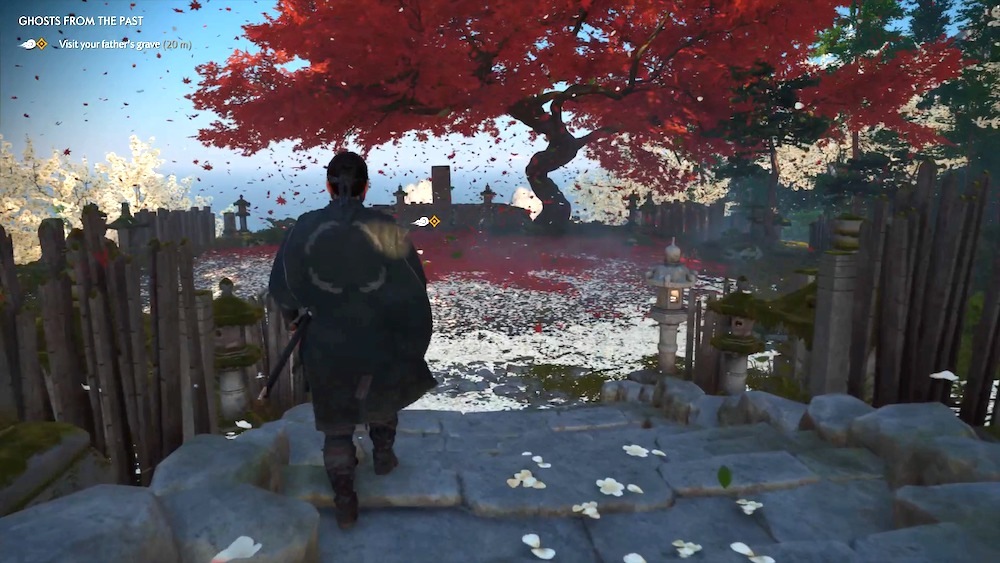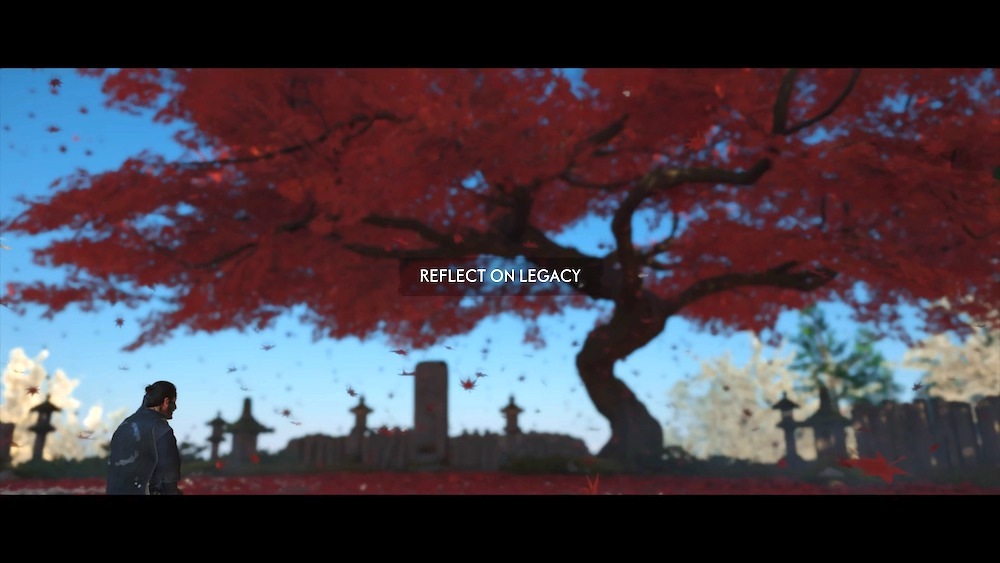Sometimes, video games help you to lose yourself in their worlds and stories, using the power of interactivity to bring you into the life of a character and to provide you with the opportunity to experience at least some version of their emotions. And sometimes, you get "Press F to Pay Respects."
If you're somehow not familiar with a video game joke that became a pretty widespread meme, the "Press F" moment came about in Call of Duty: Advanced Warfare. Early in the story, tragedy strikes, and the protagonist character attends a friend's funeral. As the scene plays out, Advanced Warfare throws some interactivity your way to add some gravitas, prompting you to hit a button to enable your character to express their grief. If you're playing on PC, the default key for honoring the dead in this case is "F."
It's not even Call of Duty's fault--lots of games have had very similar moments with very similar prompts, or have allowed you to do dumb video game things at the exact wrong times--but the instance in Advanced Warfare just feels particularly goofy, probably because it appears in such a high-profile game. Here you are at a digital funeral for a fictional character in what the game hopes is an emotional, poignant moment, but a passing attempt at adding some interactivity to the scene actually works to completely undermine it. "Press F to Pay Respects" does nothing but scream at you that you're playing a video game, and that the video game is hamfistedly trying to get you involved in something so quintessentially human as mourning, and failing at it. It's a glaring reminder that a lot of AAA games just don't have a good idea of how to make it feel natural to interact with the world in a way that's not about killing stuff.
Which brings us to Ghost of Tsushima and its take on pressing F to pay respects.

Ghost of Tsushima is pretty emotional, for an open-world game about sneaking up on and stabbing the soldiers of an invading army. Its themes include sacrifice, what you owe to others and to yourself, and failing to live up to the expectations of those closest to you. It spends a lot of time building relationships between Jin and various characters, and then explores how much it can hurt to lose those relationships, whether through tragedy or through the characters' own actions.
It's a surprisingly introspective and contemplative game, and that's reflected in several moments in which Jin visits graves. When dropping by, say, the grave of Jin's father, you get Tsushima's brand of "Press F to Pay Respects," but it's more than just hitting a button to trigger a momentary somber animation. Instead, Jin sits quietly before the grave for a moment and takes in the scene around him. A second later, you're spurred to engage with one of the more interesting ideas of Ghost of Tsushima, and write a haiku.
Before we go any further, more than one person has criticized the implementation of Ghost of Tsushima's haiku mechanic and the quality of the haiku it allows you to construct, and those criticisms are right. (Our own Kevin Knezevic breaks down everything that's wrong with Tsushima's haiku pretty comprehensively, in fact.)
Yes, haiku is historically anachronistic for the period the game is covering, which makes them feel, at least intellectually, like the idea of an element of Japanese culture rather than a more deft use of it. And Tsushima does not help you write particularly good haiku, it must be said. The system gives you a prompt (such as "Reflect on Loss") and then lets you pan the camera across the landscape around you, where you can find and pick one of three haiku lines. You repeat the process until you create a little 5-7-5 poem out of the nine total options. As it was described by Austin Walker on an episode of Waypoint Radio, it's essentially Mad Libs, and as Kevin wrote in his piece, all the poems are pretty much meaningless.

Considering all that as read, Tsushima still gets a lot right in deploying its haiku idea for these emotional moments--it's less about the haiku you produce and more that you're spending time producing one at all. When you visit the grave of Jin's father, you actually visit his grave. You sit there for a while. You look around the scene and take it in. You reflect on their relationship and what it means to Jin, something that has been built into his character development. You take a second out from the sneaking and sword fighting to just sit and think. And you write a bad poem.
In trying to find a way to add interactivity to a personal, human moment, developer Sucker Punch actually landed on a pretty good idea, or at the very least, a creative solution to the problem. The haiku system is still pretty damn video gamey, but at least it actually does kind of feel like paying respects--more than hitting a key to advance a cutscene does, anyway.
Tsushima is an action game that's willing to slow down and put its players in quieter, more introspective moments to serve its story. If games are going to continue to try to make these moments interactive in a meaningful way, you could do worse than cobbling together a bit of dumb verse to honor your dead in-game dad.
Ghost Of Tsushima News
- Ghost Of Tsushima Getting "Legends" Co-Op Multiplayer For Free
- Ghost Of Tsushima Review - Chaos In The Windy City
- Ghost Of Tsushima Mythic Tales Guide: How To Complete Them All
- + Show More Ghost Of Tsushima News Links (2)
- Ghost Of Tsushima Armor Guide: All Armor Sets And Locations
- Ghost Of Tsushima Walkthrough, Guides, Collectibles, And Tips (Spoiler-Free)

